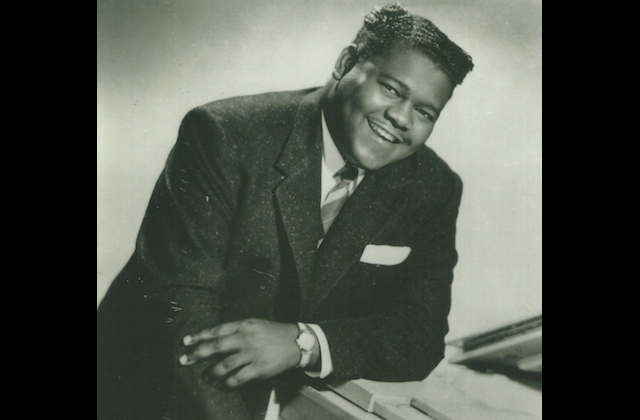Rock and Roll Pioneer Fats Domino Dies at Age 89

Veteran musician Antoine "Fats" Domino died in his daughter's suburban New Orleans home yesterday (October 24). He was 89 years old. The Jefferson Parrish Coroner's Office attributed Domino's death to natural causes.
NPR describes Domino as "one of the architects of rock 'n' roll" and says that "he outsold Little Richard, Chuck Berry and Buddy Holly—combined."
According to his AllMusic biography, the New Orleans-bred singer and pianist released his first single, "The Fat Man," in 1949. That song, which introduced audiences outside of the Crescent City to his blues-based piano riffs and raspy singing voice, sold one million copies and reached number two on the nation's R&B chart. AllMusic describes it as “one of the dozens of tracks that have been consistently singled out as a candidate for the first rock and roll record."
NPR notes that he “hit the R&B charts a reported 59 times, and the pop charts a rollicking 63 times" between 1950 and 1963—a considerable feat at a time when White artists like Elvis Presley were getting famous by adapting Domino's style for White audiences. Domino's music endeared him to Black and White audiences, but NPR notes that his audience grew Whiter by the 1960s. That created problems when he toured the South, including one incident with the Ku Klux Klan in South Carolina that NPR relates as follows:
In South Carolina, the Ku Klux Klan gave his band directions—by the light of a burning cross. The late saxophone player Herbert Hardesty was driving the Domino bus on that occasion.
"So I had to make it tight," Hardesty recounted. "In about five minutes, I came to Ku Klux Klan. They said, 'Well, where's Fats Domino?' I said, 'He's not here.' They said, 'What are you guys doing?' I said, 'I'm lost, I'm trying to get back to the highway.' And they were very nice—the Ku Klux Klan treated us very nice!"
Domino lived in the Lower Ninth Ward of New Orleans for many years, and NPR reports that his house endured significant damage during Hurricane Katrina. He lived out the rest of his years with his daughter in the suburbs, but Rolling Stone confirms that the newly restored New Orleans house still stands.
Celebrate Domino's legacy with three of his biggest hits:
